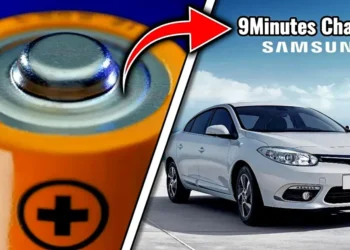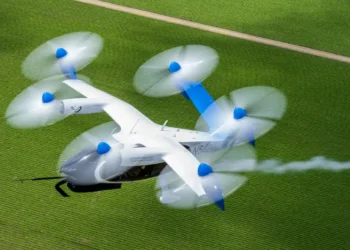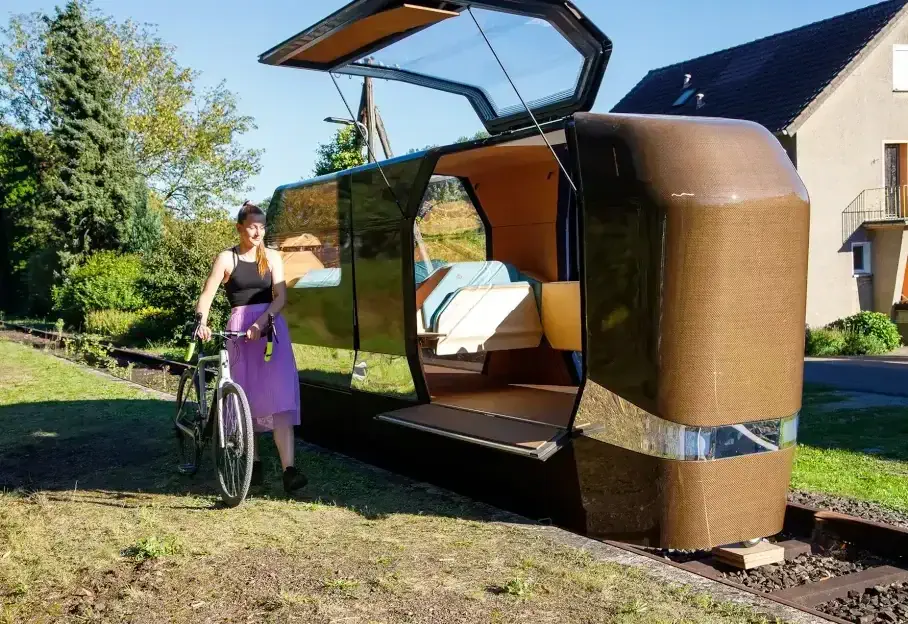
Living in the city has its perks, like having lots of transportation options nearby. Even though city traffic can be a hassle, trains and trams are usually there when you need them. Meanwhile, people in rural areas often need their own vehicles to get around. But that might change with new ideas like the MONOCAB-OWL becoming popular.
Surveys show that many railway lines outside of cities are still there. Even though they’re not used anymore for different reasons, they’re still in good shape.
Plus, these tracks often go through areas where there’s no public transportation or it’s hard to reach by car.
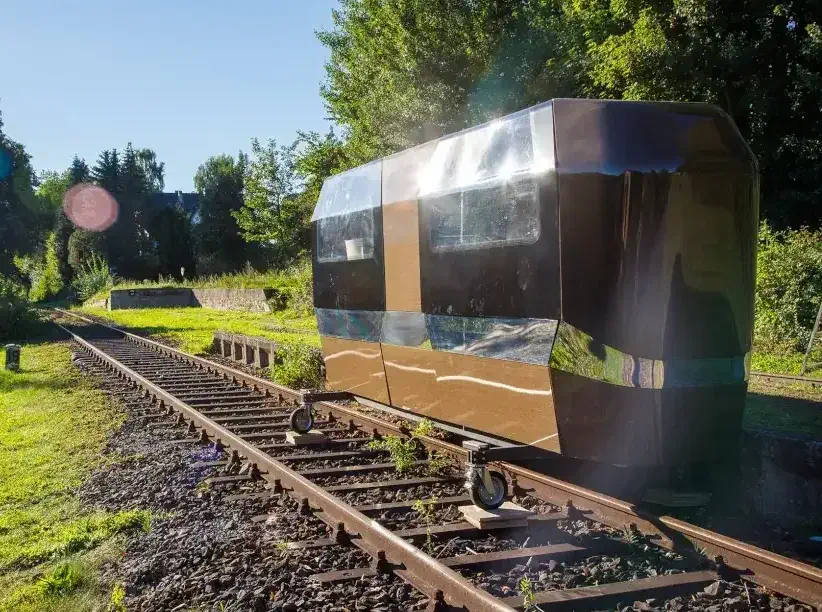
In countries like Germany, lots of rural train lines aren’t getting much use these days. Plus, more folks are moving to cities because they don’t like waiting for public transport or driving long distances.
The MONOCAB is designed to use railway tracks efficiently because of its small size. Since it runs on a single track, two units can pass each other safely in opposite directions. To stay balanced, it uses an advanced gyroscope system throughout the journey.
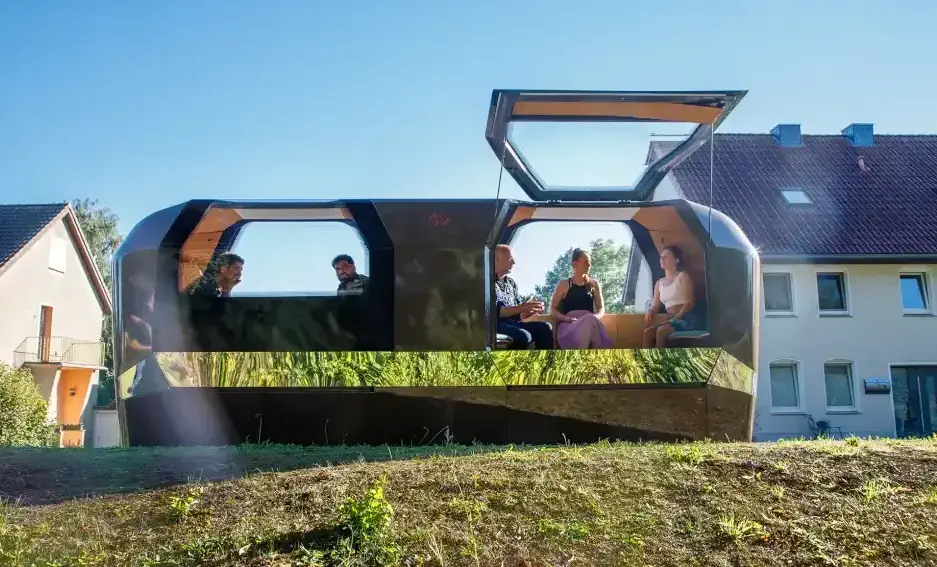
The MONOCAB is an inclusive transportation option, meant for everyone from families and students to commuters, seniors, and tourists. It can carry up to six adults comfortably.

Instead of following strict schedules, the creators are considering a system more like ride-hailing or ride-sharing services. If the MONOCAB OWL lives up to its promises, it could become widely used worldwide.
Successful Testing of Early Prototypes:
The MONOCAB-OWL project is inspired by an old idea. Monorail vehicles were first tested in 1906 by Louis Brennan. Now, we’re using new technology to make a safe and useful vehicle that meets current needs.
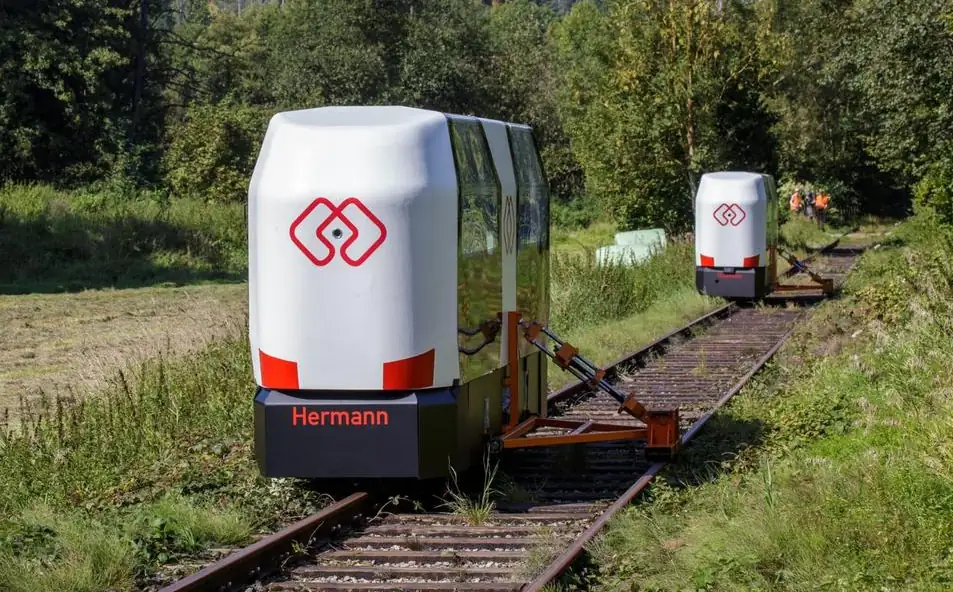
The MONOCAB-OWL project is moving forward quickly. They’ve built and tested some early versions of the vehicle, with the latest test taking place in September 2023 in Bielefeld, Germany.
Professor Thomas Schulte is leading the project, which involves teams from OWL University of Technology, Bielefeld University of Applied Sciences, and Fraunhofer IOSB-INA.
Right now, their main goal is to show that these small, self-driving monorail vehicles can be safe, reliable, and not too expensive.
Widespread Support for MONOCAB-OWL
The project won the German Mobility Award in 2018 for its creative idea. This shows how it could help with transportation in the future, especially in rural areas.
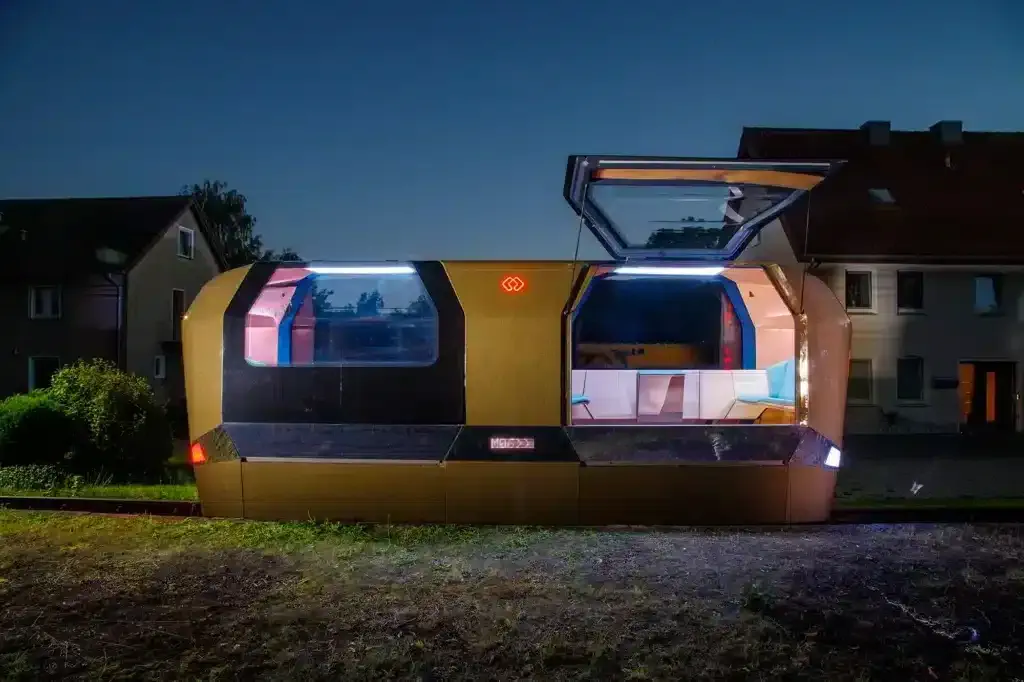
The MONOCAB-OWL project got money from the European Regional Development Fund (ERDF) and the Ministry for Transport in North-Rhine Westphalia, Germany.
This shows they’re serious about finding new and eco-friendly ways to get around. Plus, lots of groups are helping out too, from local to national levels.
Experimental pods are currently being tested on a small part of a countryside railway in Germany. Försterling predicts that a completed prototype will be in operation by 2028.




